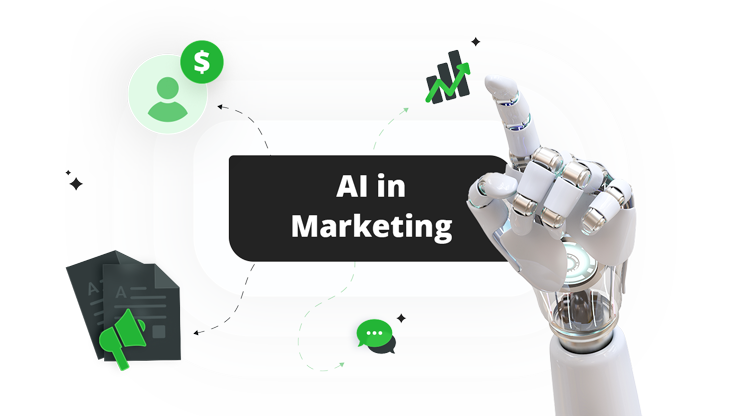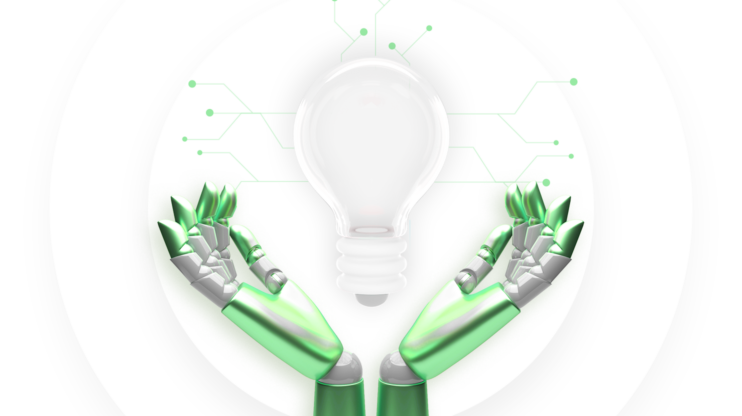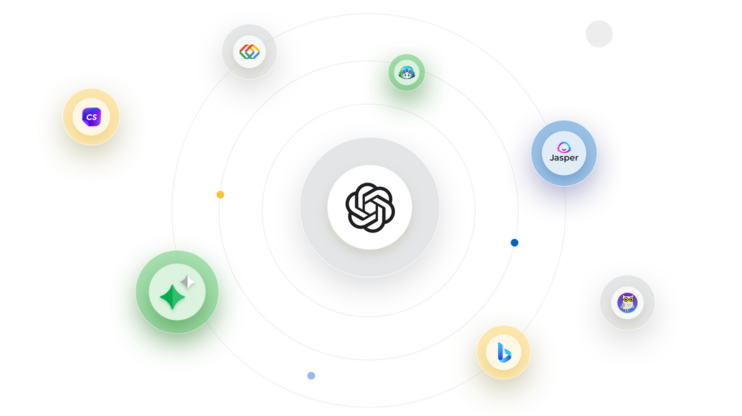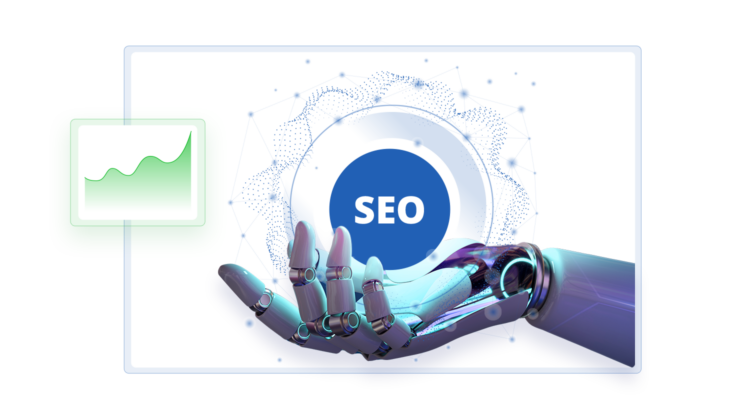With the digital business becoming increasingly competitive, marketers have their work cut out for them. At the same time, consumers are demanding increasingly personalized and enhanced experiences. The problem is that this requires gathering and analyzing endless amounts of market data to segment, understand, and tailor campaigns to potential customers. The most promising solution is to leverage the power of AI in market research to enhance the capabilities of marketers to generate actionable insights and make data-driven decisions in real time.
Below, we’ll look at how AI in market research is changing the landscape by giving marketers more flexibility and agility while accelerating traditional marketing processes.
In This Article
Market research in a nutshell – the current state of AI
Advances in AI tools for market research are revolutionizing the field of market research, transforming the way brands gather and activate consumer insights. While valuable, traditional approaches to market research are often limited in their scope and ability to provide real-time, predictive, and prescriptive insights.
However, AI-enabled Consumer Intelligence (AICI) platforms are changing the game by leveraging AI and data-mining algorithms to harness data from multiple sources such as social media, search engines, surveys, and more.
Recently, the importance of understanding consumers’ preferences, motivations, and opinions has grown beyond the capacity of market research and customer insights teams. Getting marketing data from a single source is no longer enough.
Marketers need to analyze various streams, like social listening, the voice of the customer, and text analytics, into a single platform to gain actionable insights. Market research AI software is the only technology capable of processing this wide range of data efficiently enough to enable brands to tap into online conversations across social media, blogs, forums, and more in real time.
According to a recent Gartner survey, AI was the #1 technology CEOs expected to disrupt their industry. As a result, AI-driven consumer insights are gaining traction and being adopted by more organizations. This has made it increasingly possible for market leaders and teams to incorporate AI into their operations.
AI is also being used in various marketing activities:
- 47% of marketers use it for targeting ads,
- 42% to personalize offers and content in real-time,
- 39% to optimize email send time.
What’s more 64% of marketers consider AI to be a valuable part of their marketing strategy, while 80% say AI is having the most significant effect on how customers is interacting with their brand.
This means that you’re already falling behind if you haven’t started to dip into AI as part of your marketing strategy. However, the good news is that it’s never too late to start.
Related Articles
10 applications of AI in market research
AI is transforming the field of market research by providing advanced capabilities to gather, analyze, and get actionable insights from vast amounts of data. From sentiment analysis to predictive analytics, image, and video analysis to customer journey analysis, AI-powered applications give market researchers the power to understand consumers, optimize strategies, and make data-driven decisions.
As technology continues to evolve, AI will play an increasingly vital role in shaping the future of market research in a number of applications:
Sentiment analysis
AI-powered sentiment analysis enables market researchers to analyze the emotions, opinions, and attitudes expressed in large volumes of text data, such as social media posts, customer reviews, and survey responses. Natural Language Processing (NLP) algorithms categorize the sentiment as positive, negative, or neutral, providing valuable insights into customer perceptions and preferences.
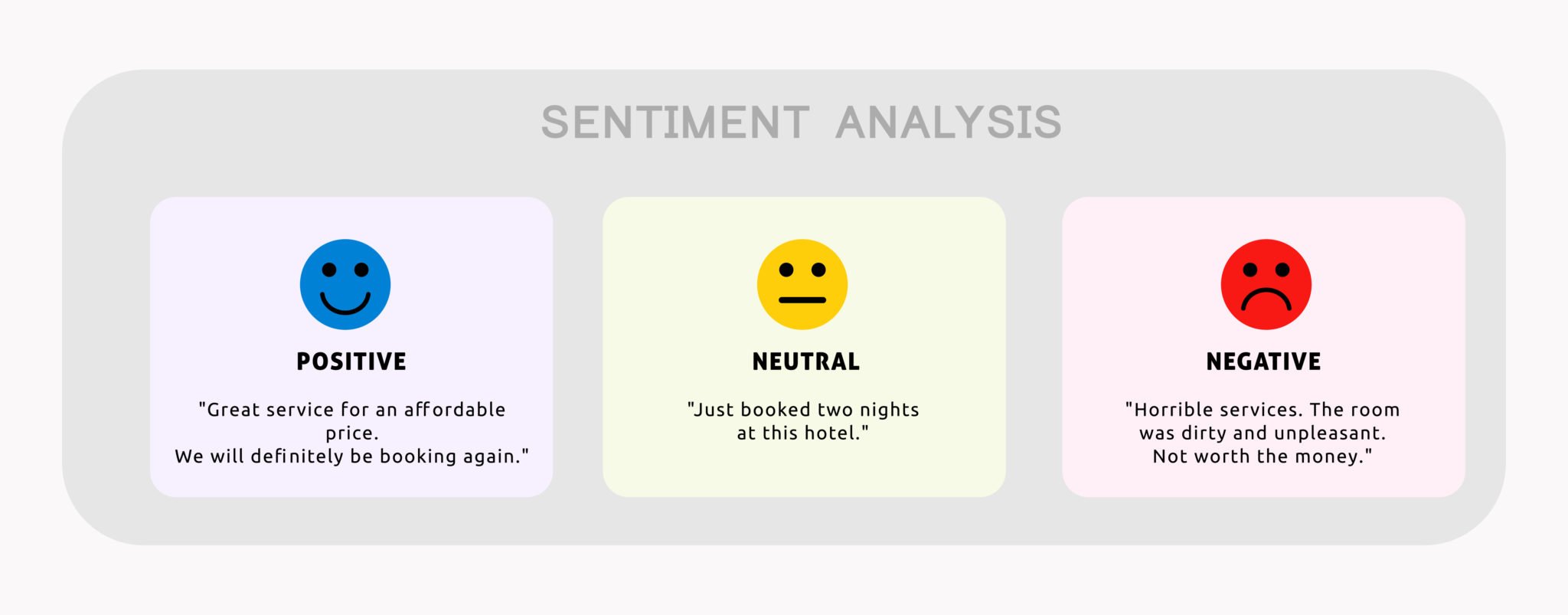
Example: Cosmetics businesses can use AI in market research to quickly analyze thousands of social media posts to gauge customer sentiment towards their latest product launch, allowing them to make informed marketing decisions and improve their product.
Predictive analytics
AI algorithms can analyze historical data, identify patterns, and make predictions about future market trends and consumer behavior. Predictive analytics helps market researchers forecast demand, optimize pricing strategies, and make informed decisions about product development, marketing campaigns, and inventory management.
Example: eCommerce retailers can analyze historical customer data, market trends, etc. to accurately forecast future demand for products and optimize marketing campaigns.
Consumer segmentation
AI-driven market research clustering algorithms group consumers into distinct segments based on similarities in their demographics, behaviors, and preferences. Market researchers can then tailor marketing strategies and messages to each segment, improving campaign effectiveness and enhancing customer targeting efforts.
Example: Fashion brands can analyze diverse data sets to identify distinct customer segments based on demographics, behaviors, and preferences, enabling them to tailor marketing strategies and create personalized experiences.
Image and video analysis
With the rise of visual content on social media and other platforms, AI-powered image and video analysis tools have become invaluable for market researchers. These tools can automatically analyze and categorize visual content, detect brand logos, and recognize objects, scenes, and emotions depicted in images or videos, providing deeper insights into how customers interact with visual media.
Example: A travel agency can automatically analyze user-generated content to identify popular destinations, detect visual trends, and gain insights into customer preferences, enabling them to create targeted marketing campaigns with captivating visuals.
Voice and speech analysis
Voice and speech-enabled AI marketing research tools allow market researchers to analyze and extract valuable insights from recorded phone calls, customer support interactions, and voice-based survey responses. NLP algorithms transcribe and analyze the audio data, identifying key topics, sentiment, and customer satisfaction levels, enabling businesses to improve customer service and identify issues.
Example: Telecom companies can analyze customer call recordings to identify key topics, sentiment, and satisfaction levels, enabling them to enhance overall customer experience.
Social media listening
AI-powered social media listening tools monitor and analyze conversations on various social media platforms in real time. These tools can identify trending topics, monitor brand mentions, track sentiment, and provide valuable insights into consumer preferences, behaviors, and emerging market trends.
Example: Beverage companies, like Coca-Cola, use AI in market research to monitor real-time conversations across various social media platforms to track brand mentions and make data-driven marketing decisions and engage with their audience effectively.
Chatbots and virtual assistants
AI-driven chatbots and virtual assistants are increasingly used in market research to engage with consumers, collect data, and provide personalized recommendations. Used by 80% of marketers already, these conversational chatbots can conduct surveys, answer customer inquiries, and capture valuable insights from interactions, enabling organizations to gather data at scale and improve customer engagement. Some even use them to reduce support tickets and response times.
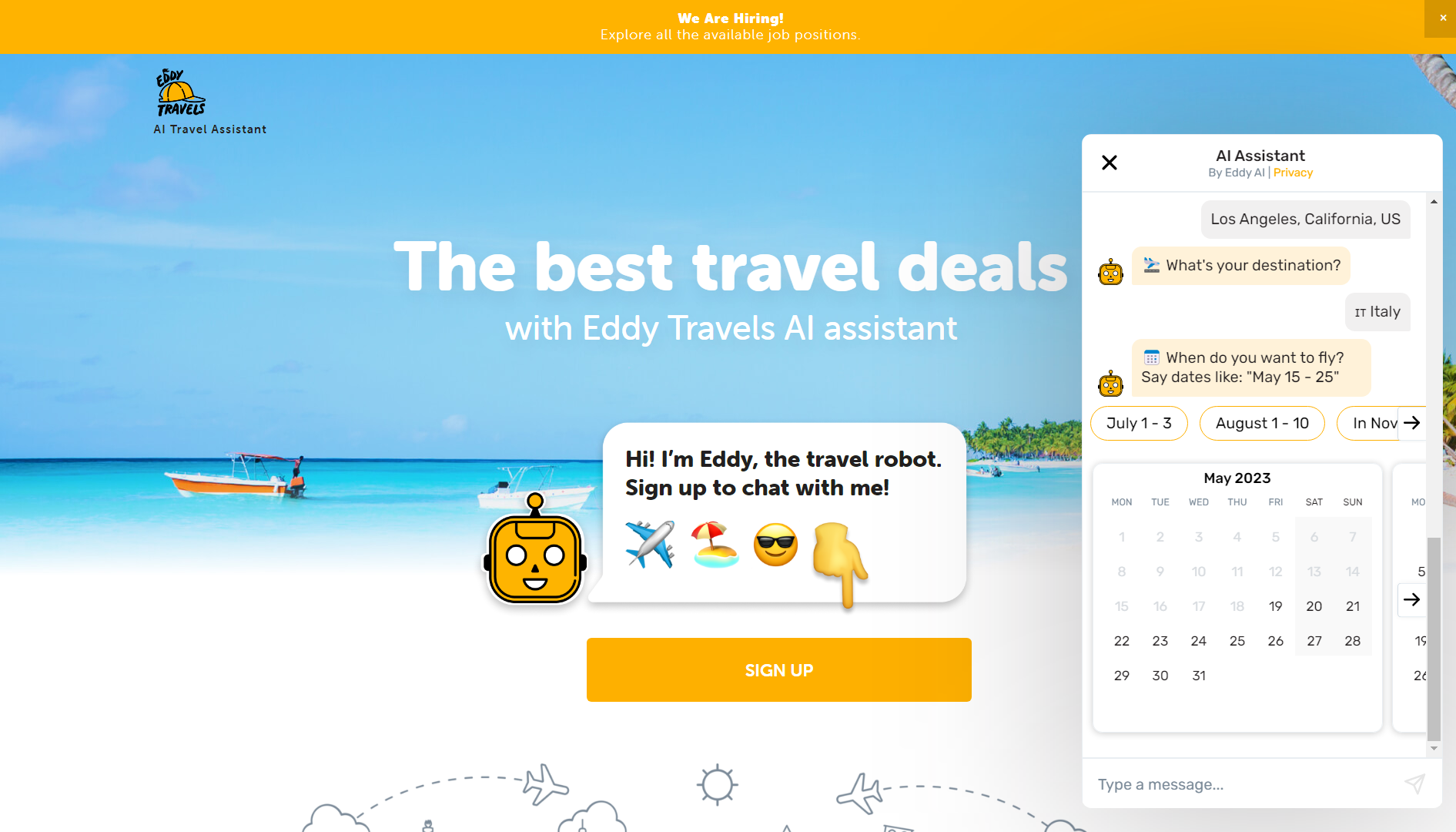
Example: eCommerce platforms can use chatbots to make personalized product recommendations, offer 24/7 support, and enhance customer engagement, which drives sales and improves overall customer satisfaction.
Customer journey analysis
AI algorithms can analyze multiple touchpoints and interactions throughout the customer journey to identify critical moments, pain points, and areas of opportunity. By understanding the customer journey in detail, market researchers can optimize marketing strategies, improve customer experiences, and drive customer loyalty.
Example: A retail brand can analyze various touchpoints and interactions across multiple channels to identify key moments in the customer journey and optimize its marketing strategy to not miss out on conversions.
Demand forecasting
AI-based demand forecasting models leverage historical sales data, market trends, external factors, and even weather patterns to predict future demand for products or services. Accurate forecasting helps organizations optimize inventory levels, production planning, resource allocation, and reducing costs. It also helps boost the customer experience, by reducing delivery times and ensuring there is always stock for popular items.
Example: An consumer electronics company can use it to balance the demand for products based on historical sales data, market trends, and external factors (like chip shortages). This allows them to optimize warehousing and supply-chain costs while maintaining suitable inventory levels.
Concept testing and product innovation
AI-powered concept testing tools enable market researchers to test and evaluate new product concepts or features before launch. Through advanced algorithms, consumer feedback, and predictive analytics, these tools help assess market acceptance, identify potential improvements and guide product innovation strategies.
Example: Tech startups can gather consumer feedback, analyze preferences, and predict market acceptance of a new product concept to guide their product development team.
5 AI tools for market research
Marketers already have access to many powerful tools to use AI in market research projects. Out-of-the-box solutions often provide the most cost-effective way to start leveraging AI and ML to enhance their marketing teams’ capabilities with lower lead times.
1. AI Market Research Assistant by Prelaunch.com
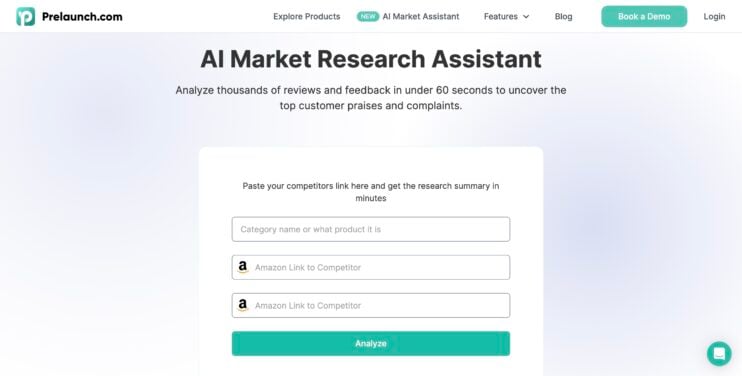
This market research tool helps physical product sellers improve their products by analyzing thousands of real customer comments on competitors’ Amazon listings.
You just need to define your product’s category (what it is) and give some of your biggest competitors’ Amazon URLs. In a matter of minutes, the tool returns the insights. The insights can include answers to important questions like:
- What’s the most liked or disliked feature,
- Unique selling points,
- Price/Benefit relationship,
- What’s the ideal customer persona, etc.
It’s all free for now.
Poll the People
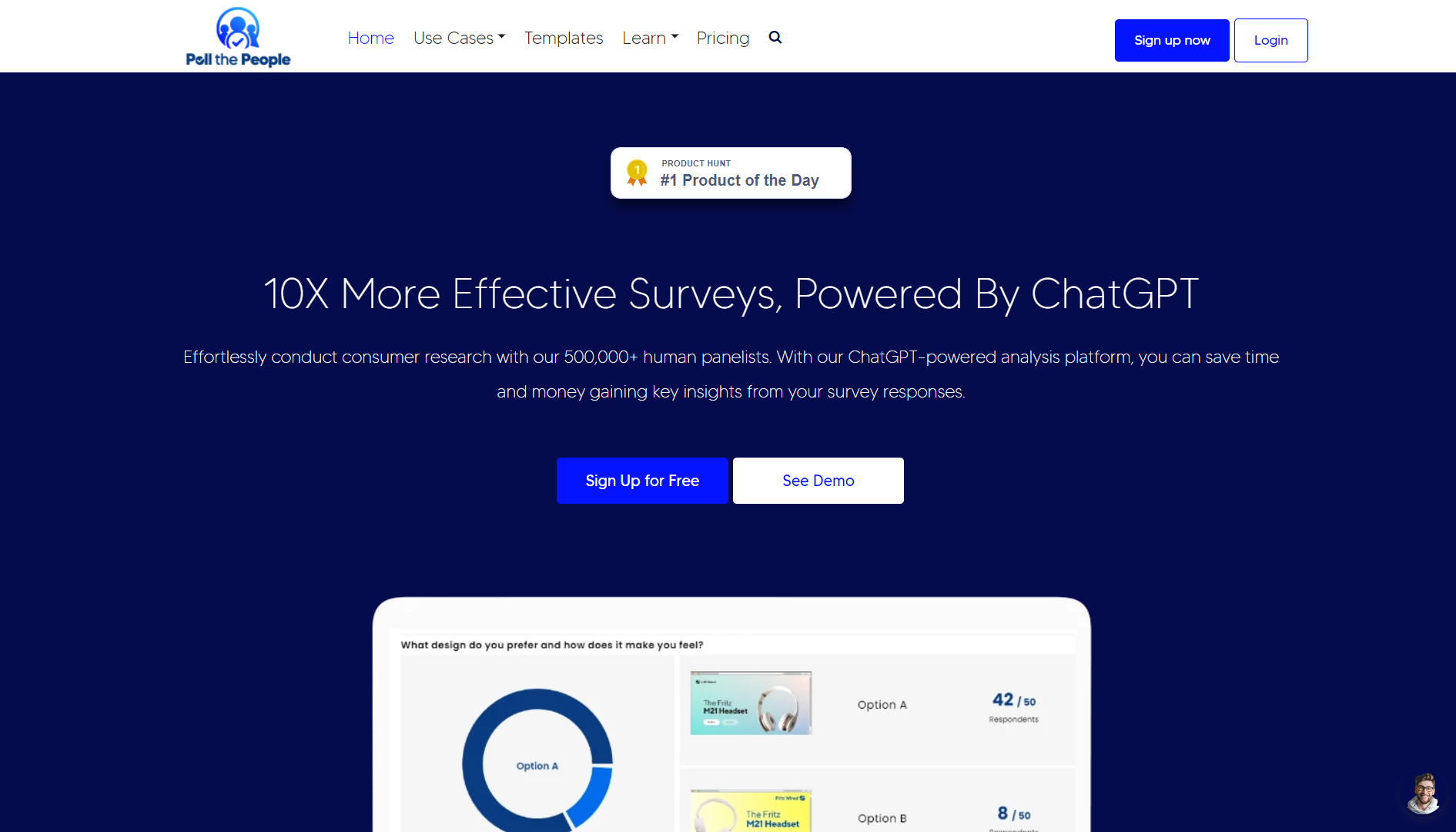
Powered by OpenAI and Chat-GPT (yes, that Chat-GPT), this AI market research platform combines human intelligence and AI to enable data-driven decision-making. The platform uses a network of over 500,000 human panelists to gather survey data. You can create your own survey and disperse it to Poll the People’s panelists for real human responses.
However, the secret ingredient is that Poll the People allows you to leverage its ChatGPT-powered analysis platform to effortlessly gain valuable insights from these survey responses.
SimilarWeb
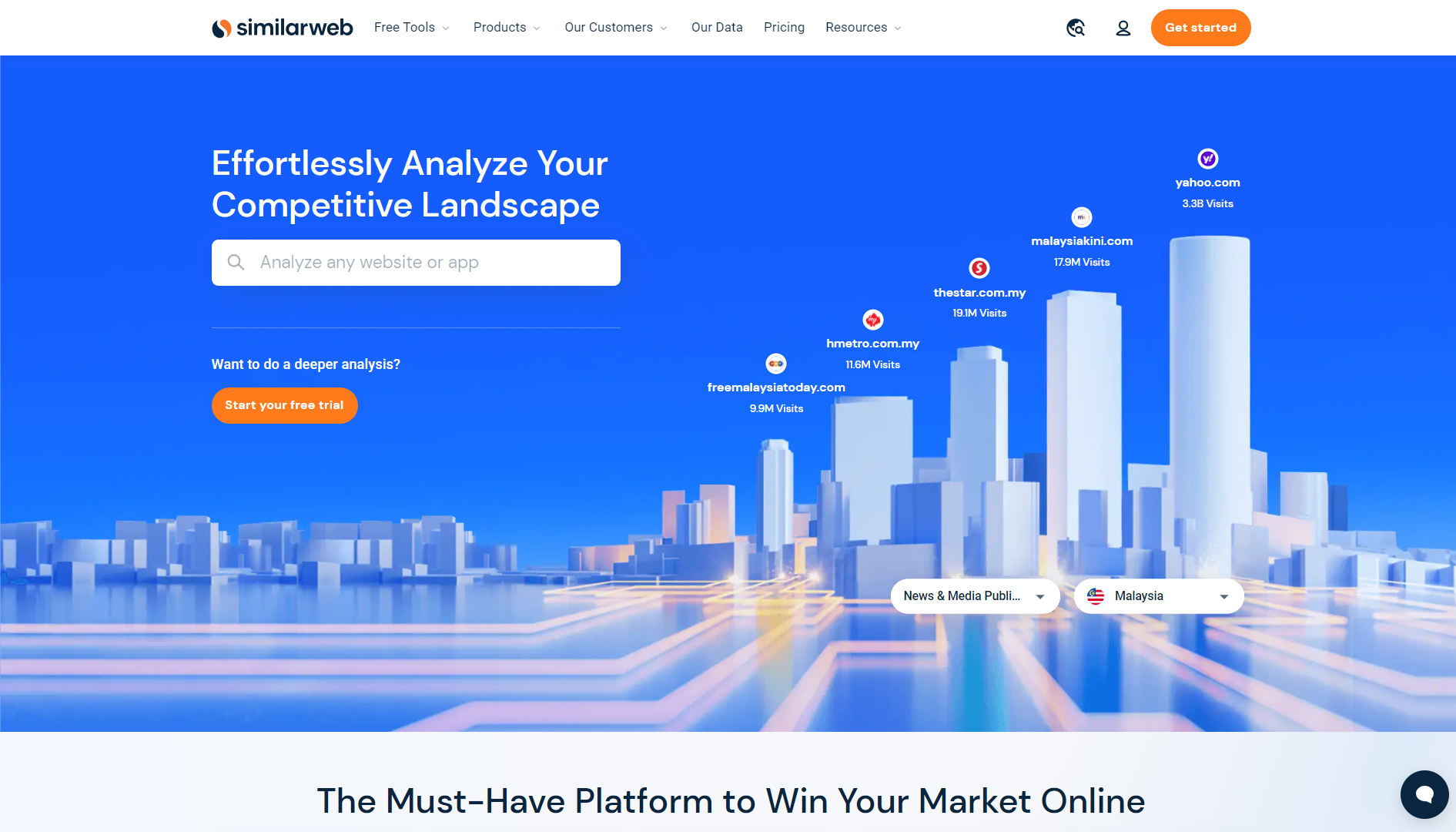
SimilarWeb is a leading AI-powered market research tool that provides comprehensive insights into digital consumer behavior. Leveraging advanced algorithms and machine learning, SimilarWeb gathers data on website traffic, user demographics, engagement metrics, and competitive analysis. This enables businesses to uncover industry trends, identify market opportunities, and benchmark their performance against competitors.
With its robust AI capabilities, including keyword analysis, audience segmentation, and app analytics, SimilarWeb empowers market researchers to make data-driven decisions, optimize marketing strategies, and gain a competitive edge in the digital landscape.
Latana
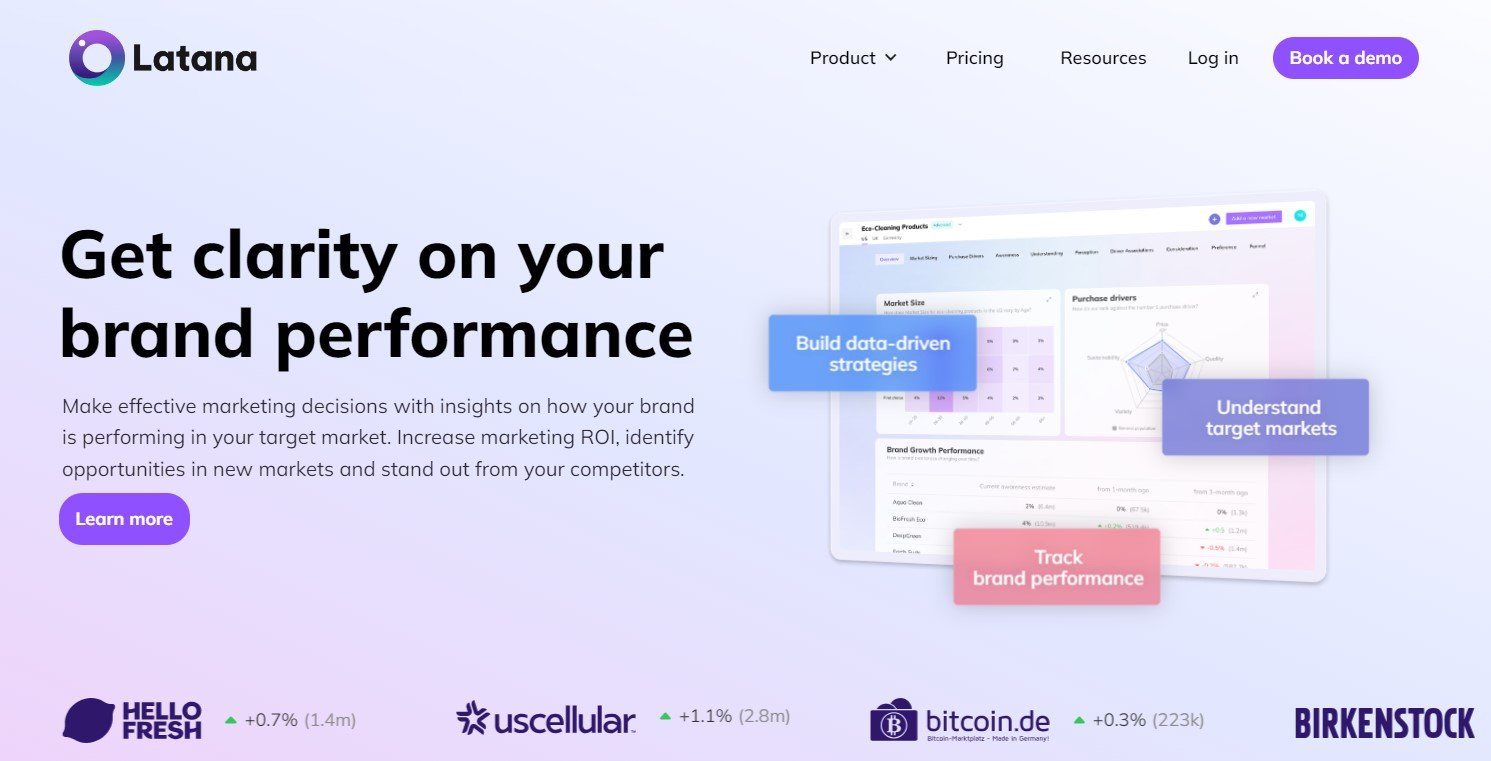
Latana is an AI research tool that specializes in brand performance tracking. It leverages advanced AI and machine learning algorithms to provide accurate and real-time insights into brand performance and audience perception.
Latana collects data from a diverse range of sources, including online surveys, social media, and website analytics, to help businesses understand brand awareness, brand perception, customer sentiment, and competitive positioning. The tool offers customizable dashboards, robust analytics, and visualizations to assist market researchers in making data-driven decisions and optimizing their brand strategies.
Tableau
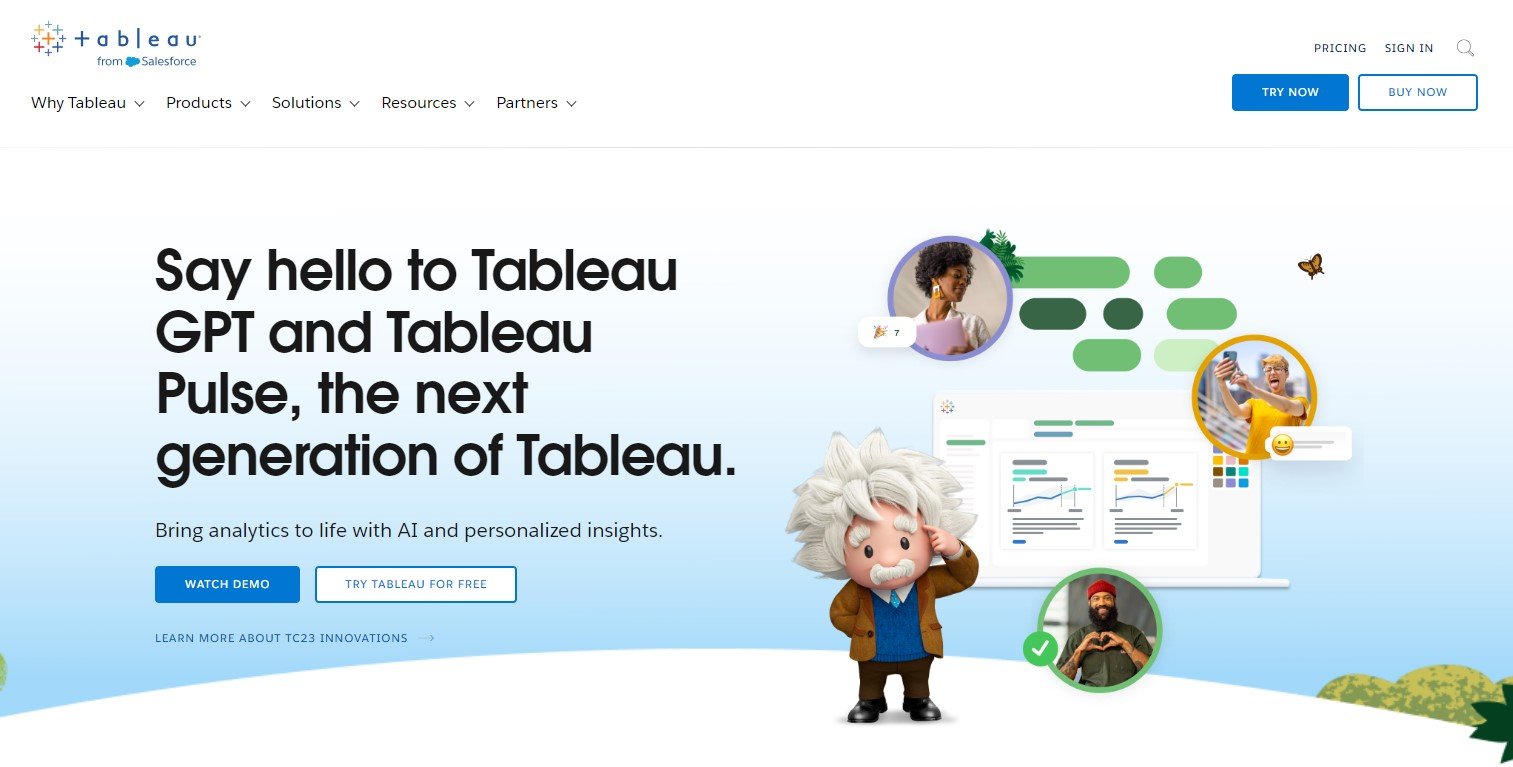
Acquired by the leaders in business AI and CRM, Salesforce, Tableau is an AI-powered data visualization and analytics tool that empowers market researchers to gain valuable insights from their data. With its intuitive interface and advanced analytics capabilities, Tableau enables users to explore, analyze, and visualize complex market research data.
By leveraging AI-driven features, such as automated data modeling and smart recommendations, this AI market research tool helps uncover patterns, trends, and correlations in market data. Its interactive dashboards and visualizations make it simple to communicate research findings effectively within your marketing team.
Future outlook of AI in market research
If you look at the statistics, it is clear that AI in market research is here to stay. 61.4% of marketers already use AI in one or more of their marketing activities. It also continues to grow in specific marketing areas. 68% of marketers intend to use AI to innovate their email marketing activities, while 63% plan to use it in their influencer campaigns.
It’s no wonder that the AI marketing market itself is expected to grow from a value of just $12.2 billion in 2022 to $77.4 billion by 2030 at an astronomical CAGR of 25.2%.
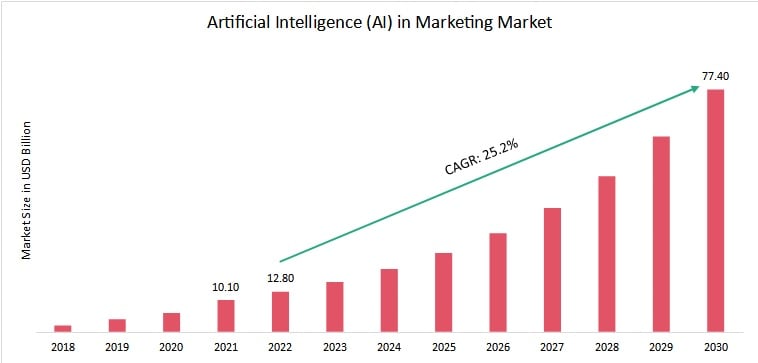
So, not only is AI in marketing research already a significant force, but its influence will only grow. Those who don’t invest in it now, risk falling further and further behind early adopters and industry leaders.
However, the future of consumer understanding lies in a combination of human intelligence and AI for market research capabilities. While traditional social listening techniques have their place, augmenting market research with AI and automation has become essential to cope with the overwhelming volume of data available.
Conclusion
Looking to the future, AI in market research will continue to play a vital role in shaping the field. The rise of hyper-personalization, augmented intelligence, and ethical considerations will further enhance the capabilities of AI in delivering tailored experiences and enabling human-machine collaboration.
AI-driven consumer insights are gaining traction, and organizations that embrace AI as part of their marketing strategy will have a competitive edge in understanding customer behavior, optimizing marketing campaigns, and fostering meaningful customer relationships.
Get a head start on website creation with AI
Create a custom website tailored to your business needs 10X faster with 10Web AI Website Builder!










![Featured image for Top 15 AI Voice Generators of 2024 [+ Free Tool Inside] article](https://10web.io/blog/wp-content/uploads/sites/2/2023/12/DALL┬AE-2023-12-22-12.03.27-Sleek-professional-workspace-with-modern-laptop-on-minimalist-wooden-desk.-Laptop-screen-displays-text-to-speech-voice-generator-software-interface-.png)
